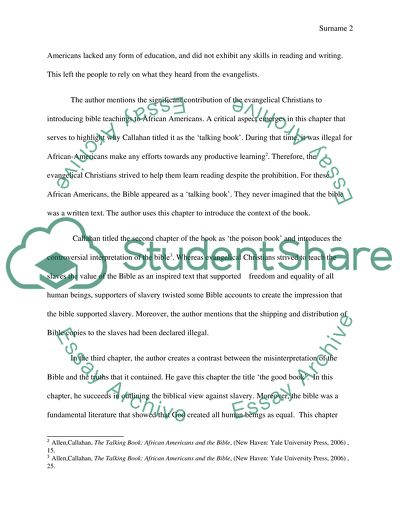Cite this document
(“The Talking Book: African Americans and the Bible by Allen Dwight Book Report/Review”, n.d.)
The Talking Book: African Americans and the Bible by Allen Dwight Book Report/Review. Retrieved from https://studentshare.org/religion-and-theology/1471571-the-talking-book-african-americans-and-the-bible
The Talking Book: African Americans and the Bible by Allen Dwight Book Report/Review. Retrieved from https://studentshare.org/religion-and-theology/1471571-the-talking-book-african-americans-and-the-bible
(The Talking Book: African Americans and the Bible by Allen Dwight Book Report/Review)
The Talking Book: African Americans and the Bible by Allen Dwight Book Report/Review. https://studentshare.org/religion-and-theology/1471571-the-talking-book-african-americans-and-the-bible.
The Talking Book: African Americans and the Bible by Allen Dwight Book Report/Review. https://studentshare.org/religion-and-theology/1471571-the-talking-book-african-americans-and-the-bible.
“The Talking Book: African Americans and the Bible by Allen Dwight Book Report/Review”, n.d. https://studentshare.org/religion-and-theology/1471571-the-talking-book-african-americans-and-the-bible.


